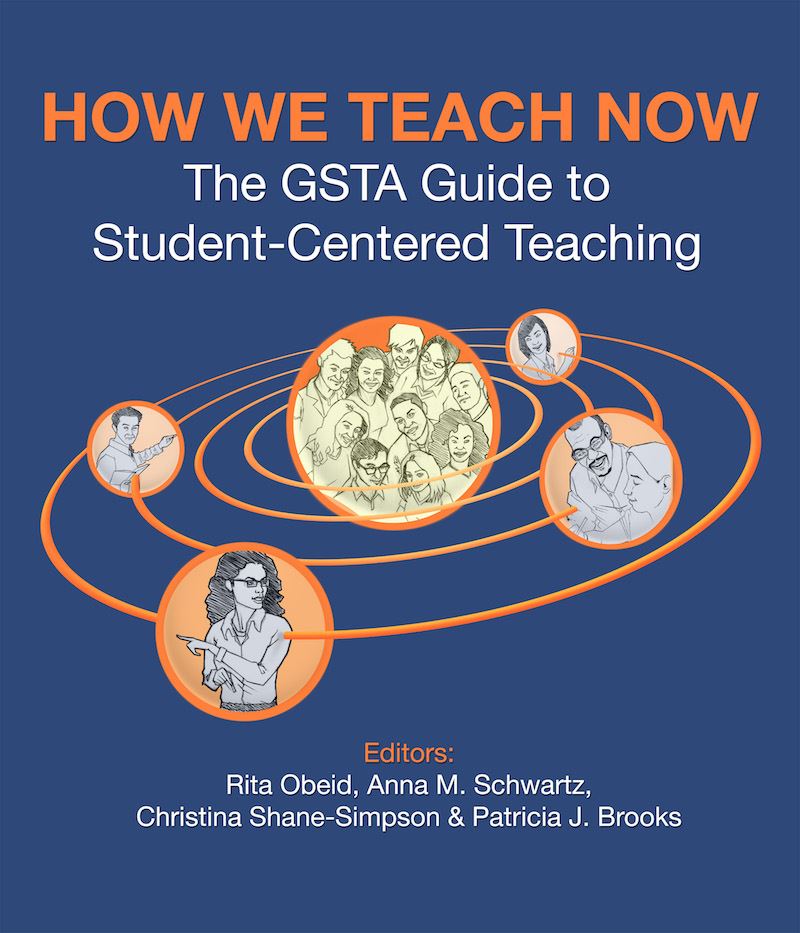- News
- How We Teach Now: The GSTA Guide to Student-Centered Teaching
| DescriptionHow We Teach Now provides an accessible introduction to student-centered teaching methods that aim to create varied learning opportunities for students to develop liberal arts and professional skills (such as critical thinking, oral and written communication, collaboration and teamwork) in addition to discipline-specific content knowledge. Chapters describe evidence-based teaching practices informed by a rich literature on the Scholarship of Teaching and Learning that emphasizes the value of active inquiry in fostering student learning and development. The chapters provide lesson plans as well as practical advice on how to shift one’s teaching away from teacher-centered methods, such as lecturing, to more effectively engage students in their own learning. Authors highlight the importance of building rapport and dialogue within the classroom, designing lessons and assessments with careful thought to purpose (i.e., using backward course design) and communicating the learning objectives to students, validating students’ diverse life experiences and background as relevant to their coursework, scaffolding difficult assignments to make them manageable, and using research as a context for cultivating interest in psychological science. The volume is intended for instructors interested in adopting state-of-the art teaching methods to help their students achieve their full potential. Contributors range from expert teachers to graduate student members of the Society for the Teaching of Psychology. ISBN: 978-1-941804-46-9 Download e-book PDF (8.7 Mb) |
Feedback Copyright and Other Legal Notices Suggested Reference Format We suggest that the overall text be referenced in this fashion: Obeid, R., Schwartz, A., Shane-Simpson, C., & Brooks, P. J. (Eds.). (2017). How We Teach Now: The GSTA Guide to Student-Centered Teaching. Retrieved from the Society for the Teaching of Psychology web site: http://teachpsych.org/ebooks/ Individual chapters may be referenced in this fashion: Gurung, R. (2017). Key Aspects of Motivation in Learning. In R. Obeid, A. Schartz, C. Shane-Simpson, & P. J. Brooks (Eds.) How We Teach Now: The GSTA Guide to Student-Centered Teaching. Retrieved from the Society for the Teaching of Psychology web site: http://teachpsych.org/ebooks/ |

